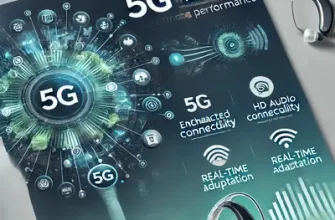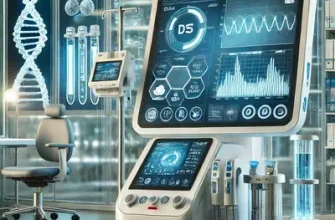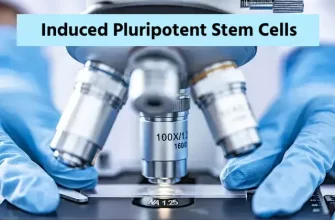What makes personalized medicine different from traditional treatments? This is a question that’s becoming more frequent as healthcare evolves. Let’s delve into these two approaches to understand their nuances, benefits, and challenges.
Comparison of Traditional Medicine vs. Personalized Medicine
What Is Traditional Medicine?
Traditional medicine, also known as the “one-size-fits-all” approach, has been the bedrock of modern healthcare for decades. It relies on well-established treatment protocols that have been proven effective for the majority of patients with similar conditions. These protocols are based on extensive clinical trials, which typically aim to identify the best treatment for the average patient.
For instance, if you have high cholesterol, your doctor might prescribe a statin—a medication that has been proven effective in reducing cholesterol levels for many patients. It’s a well-researched treatment, but it doesn’t necessarily take into account your unique genetic makeup, lifestyle, or individual response to medications.
Did you know? – Approximately 90% of all current medications are effective for only 30-50% of the patients who take them, according to a study published by the National Institutes of Health.
How Is Personalized Medicine Different?
Personalized medicine, also referred to as precision medicine, takes a different route. Instead of treating every patient the same, it uses genetic, environmental, and lifestyle data to tailor treatments specifically for each individual. By doing this, personalized medicine aims to maximize the effectiveness of treatments and reduce side effects.
For example, cancer treatment has been transformed by personalized medicine. Instead of prescribing a standard chemotherapy regimen, oncologists may now sequence the tumor’s DNA to identify genetic mutations and choose drugs specifically targeting those mutations. This not only improves the treatment’s efficiency but also minimizes the collateral damage to healthy cells.
Did you know? – The cost of sequencing a complete human genome has dropped from around $100 million in 2001 to less than $600 today, making personalized medicine more accessible.
Are the Benefits of Personalized Medicine Worth the Hype?
Personalized medicine holds great promise, but is it truly worth the attention it’s getting? Here are some of the major benefits:
- Targeted Treatment: Personalized medicine allows doctors to identify treatments that are more likely to work for specific patients. This increases the chances of success, especially for chronic and complex conditions.
- Fewer Side Effects: Because treatments are more targeted, there’s a lower risk of adverse side effects. A good example is in the use of targeted therapies for cancer, which can lead to fewer unpleasant side effects compared to traditional chemotherapy.
- Preventative Care: Personalized medicine can also help in predicting the risk of developing certain diseases. With this information, individuals can take proactive measures to prevent illnesses, such as lifestyle changes or early medical interventions.
Why Do Some Still Prefer Traditional Treatments?
Despite the promise of personalized medicine, traditional treatments are still the go-to option for many reasons:
- Affordability: Personalized treatments, especially genetic testing, can be expensive. While the costs are decreasing, it still remains out of reach for many people. Traditional treatments, in contrast, are often covered by public health systems and are generally more affordable.
- Availability: Access to personalized treatments often depends on location. Rural areas and smaller hospitals may lack the technology or specialists required to offer precision medicine.
- Proven Effectiveness: Traditional treatments have been studied extensively across large populations, providing strong data on their effectiveness. This kind of robust, population-level evidence is something personalized medicine still lacks for many conditions.
When Should You Consider Personalized Medicine?
Personalized medicine may be especially valuable for individuals who have complex or rare conditions, or who have not responded well to standard treatments. If you’ve tried several medications without success or experienced severe side effects, personalized medicine could help in tailoring a more effective and tolerable solution.
Consider the case of breast cancer treatment. With the discovery of specific genes like BRCA1 and BRCA2, treatments can now be selected based on a person’s genetic profile. This has led to better survival rates for patients whose tumors have these genetic markers.
Did you know? – According to the American Cancer Society, patients receiving tailored treatments based on tumor genetics are 25% more likely to achieve remission compared to those on standard chemotherapy.
Challenges in Adopting Personalized Medicine
While the benefits are evident, there are also hurdles in adopting personalized medicine:
- Data Privacy: Personalized medicine relies heavily on genetic data, which raises concerns about privacy and data security. How can patients ensure their genetic information is kept secure and not misused?
- Lack of Comprehensive Data: The human genome is complex, and we are still in the early stages of understanding how different genes interact. In many cases, the connections between genetic mutations and diseases are not fully understood, limiting the application of personalized treatments.
- High Costs: Despite the significant drop in the cost of genome sequencing, the overall cost of personalized treatments, which often includes extensive testing and consultations with specialists, can add up quickly.
Personalized Medicine in the Real World: What to Expect
The application of personalized medicine is growing rapidly, especially in the fields of oncology, cardiology, and pharmacology. In cancer treatment, for instance, targeted drugs like trastuzumab (Herceptin) are used specifically for breast cancer patients with HER2-positive tumors, which improves treatment outcomes significantly.
Similarly, pharmacogenomics—how genes affect a person’s response to drugs—is playing a role in mental health treatments. For example, some individuals metabolize antidepressants differently, which means that a personalized approach could help find the right medication faster, potentially reducing the trial-and-error period.
The Future: Traditional vs. Personalized Medicine
Will personalized medicine replace traditional treatments? Probably not entirely, but the future of healthcare will likely involve a combination of both approaches. Traditional medicine provides a broad foundation for treating the population at large, while personalized medicine hones in on individual needs to refine treatments where precision matters most.
Imagine a scenario where you go to the doctor and, after a blood test, they can tell you the likelihood of developing type 2 diabetes based on your genetic makeup. From there, they suggest a personalized diet plan to prevent it. It’s clear that the fusion of personalized medicine and traditional approaches could create a more preventive and effective healthcare system.
Editorial Advice: Should You Seek Personalized Care?
If you’re struggling with treatment-resistant conditions or are curious about your genetic predispositions, it could be worth exploring personalized care options. Speak to a healthcare professional specializing in genetic testing or personalized treatment plans. Remember, the more informed you are, the better decisions you can make for your health.
For now, a combination of traditional wisdom and personalized innovations appears to be the best way forward, harnessing the strengths of both worlds to create a healthier future.









